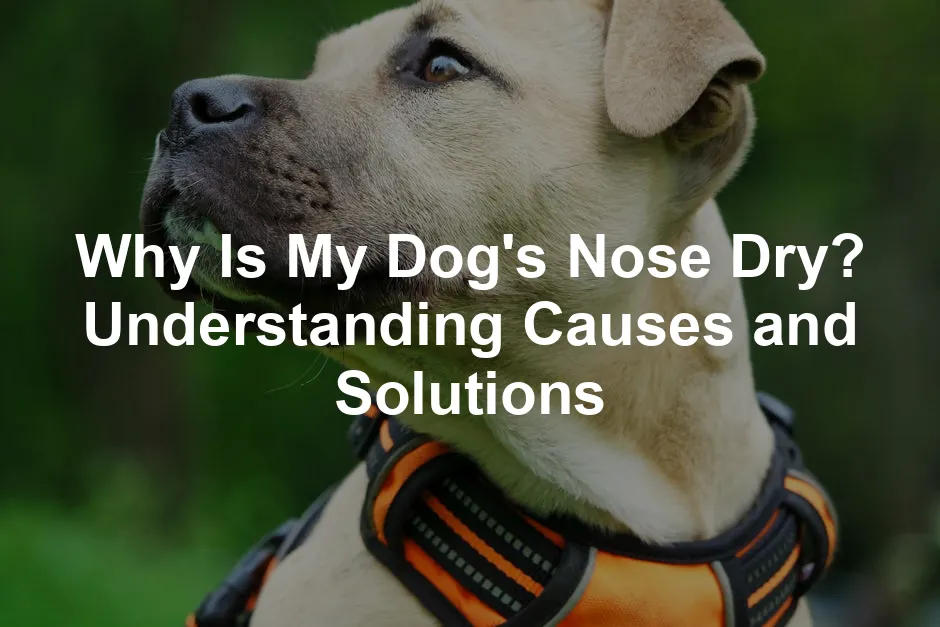
Why Is My Dog’s Nose Dry? Understanding Causes and Solutions
Introduction
Many dog owners worry when they notice a dry nose. A wet nose is often linked to good health, while dryness can cause concern. It’s crucial to understand the reasons behind a dry nose and when to consult a vet. This article will help you identify why your dog’s nose may be dry and when to seek professional advice.
And while you’re at it, why not keep your furry friend well-fed and happy with a Blue Buffalo Life Protection Formula Dog Food? It’s not just food; it’s a ticket to your dog’s heart (and a healthy nose!).
Summary and Overview
Dog noses are generally seen as indicators of health. A moist nose suggests hydration and well-functioning mucus glands. However, a dry nose can be perfectly normal or a sign of issues. We’ll cover causes of dry noses, signs that should raise alarms, and possible treatments. Knowing these points can help you keep your furry friend healthy and happy.
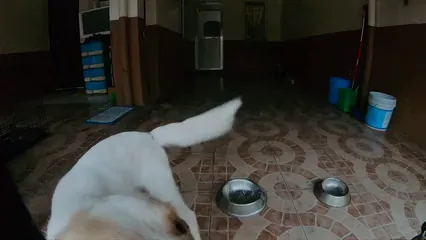
Understanding the Importance of a Wet Nose
A wet nose plays a vital role in a dog’s well-being. It enhances their sense of smell, allowing them to detect scents more effectively. The moisture on a dog’s nose traps odor particles, improving their ability to process smells. Additionally, a wet nose aids in regulating body temperature. As moisture evaporates from the nose, it helps cool the dog down, similar to how humans sweat.
Dogs produce moisture through mucus glands located in their noses. They also frequently lick their noses, which helps maintain the right level of humidity. This combination of factors ensures that their noses remain wet, which is essential for their overall health.
Speaking of noses, if your pup’s needs a little extra love, consider using Pawsitively Posh Pet Nose Balm. It’s like a spa day for their snout!
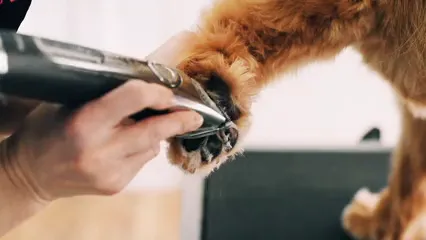
Common Reasons for a Dog’s Dry Nose
Normal Conditions
– Sleeping: Just like we do, dogs can wake up with a dry nose. When they sleep, they often don’t lick their noses. This absence of moisture can lead to temporary dryness. Usually, their nose will become moist again shortly after waking.
– Recent Exercise: After vigorous play or exercise, dehydration can set in. When dogs run around, they often forget to drink water. This can result in a dry nose. Ensuring your dog has access to fresh water after playtime is key to keeping them hydrated.
– Environmental Factors: Weather plays a significant role in nose moisture. Hot weather can dry out a dog’s nose, just like cold air can. Indoor heating during winter can also contribute to dryness. Keeping your dog in a comfortable environment helps maintain moisture levels.
Understanding how environmental factors can impact your dog’s nose is essential for their health.
If your dog struggles with shedding, the Furminator Undercoat Deshedding Tool might be the game-changer you need. Say goodbye to fur tumbleweeds rolling through your house!
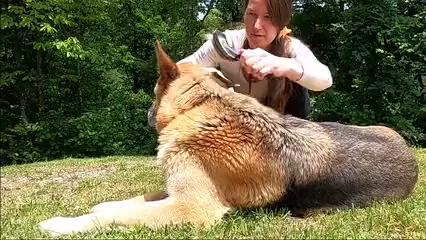
Breed-Specific Issues
– Brachycephalic Breeds: Breeds with short snouts, like Bulldogs and Pugs, may struggle to keep their noses moist. Their facial structure makes it harder to lick their noses effectively. Regularly checking and moisturizing their noses can help.
– Older Dogs: As dogs age, their mucus production decreases. This natural aging process leads to drier noses. Older dogs might benefit from nose balms to help maintain moisture and comfort.

Health-Related Causes of Dry Nose
Dehydration
Dehydration is a serious concern for dogs. Signs can include a dry nose, lethargy, and sticky gums. Causes vary, from not drinking enough water to illnesses like vomiting or diarrhea. Always provide fresh water, and monitor your dog after exercise to prevent dehydration.

Allergies
Allergies can also lead to a dry nose in dogs. Environmental allergens like pollen, dust, or certain foods can trigger reactions. These may include a dry nose, itching, or sneezing. If you suspect allergies, consider discussing options with your vet to find relief for your furry friend.
To help combat allergies, consider a supplement like Doggie Dailies 5-in-1 Multivitamin for Dogs. A daily dose could be the key to a healthier, happier pup!
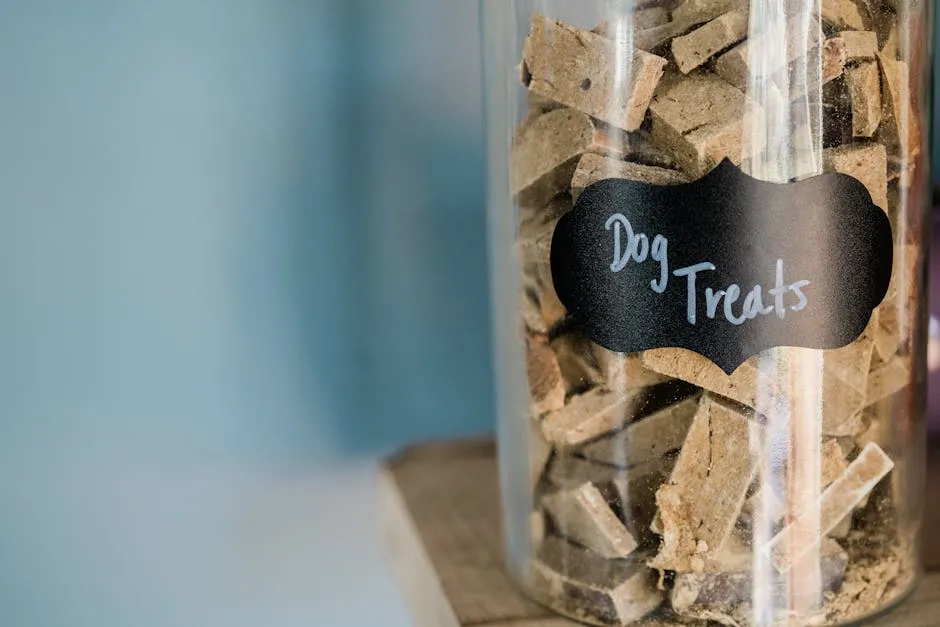
Autoimmune Diseases
Autoimmune diseases can affect your dog’s health significantly. Two common conditions are lupus and pemphigus. These diseases occur when the immune system mistakenly attacks the dog’s own body. With lupus, you might see skin lesions, while pemphigus can cause crusty sores on the nose. Both conditions can lead to a dry nose. Other symptoms include lethargy and loss of appetite. If you notice these signs, it’s essential to consult your veterinarian for a proper diagnosis and treatment plan.
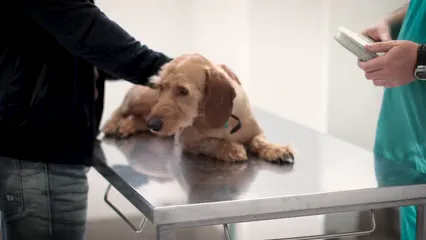
Other Medical Conditions
Nasal Hyperkeratosis
Nasal hyperkeratosis is a condition where the skin on the nose thickens due to excess keratin production. This can result in a dry, crusty appearance. Dogs with this condition often feel discomfort and may require veterinary attention. Treatment options usually include creams or ointments to help soften the nose and prevent cracking.
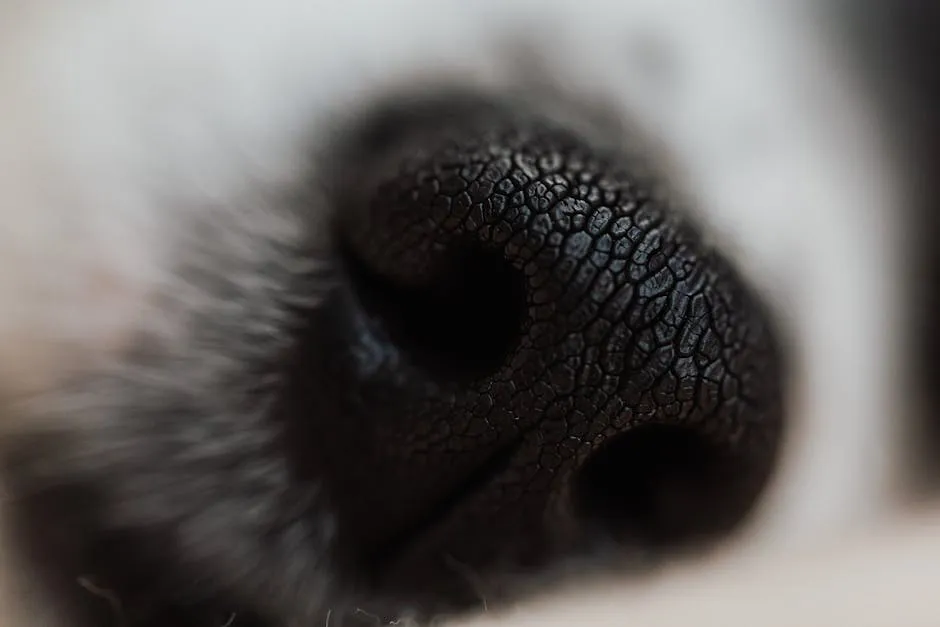
Fever
A fever can also dry out your dog’s nose. When a dog has a fever, their body temperature rises, which may affect moisture levels. If your dog’s nose is dry and warm, check for other signs of illness. Symptoms like shivering, loss of appetite, or unusual behavior indicate a need for veterinary care. A dog with a fever should be closely monitored to ensure their health.

When to Be Concerned: Signs That Warrant a Vet Visit
While a dry nose can be normal, certain signs should prompt a visit to the vet. If your dog has persistent dryness alongside other symptoms like lethargy or vomiting, it’s time to get help. Cracking or bleeding in the nose is also concerning. Discoloration or an unusual texture can indicate underlying health issues. Always trust your instincts—if something seems off, don’t hesitate to consult your veterinarian.
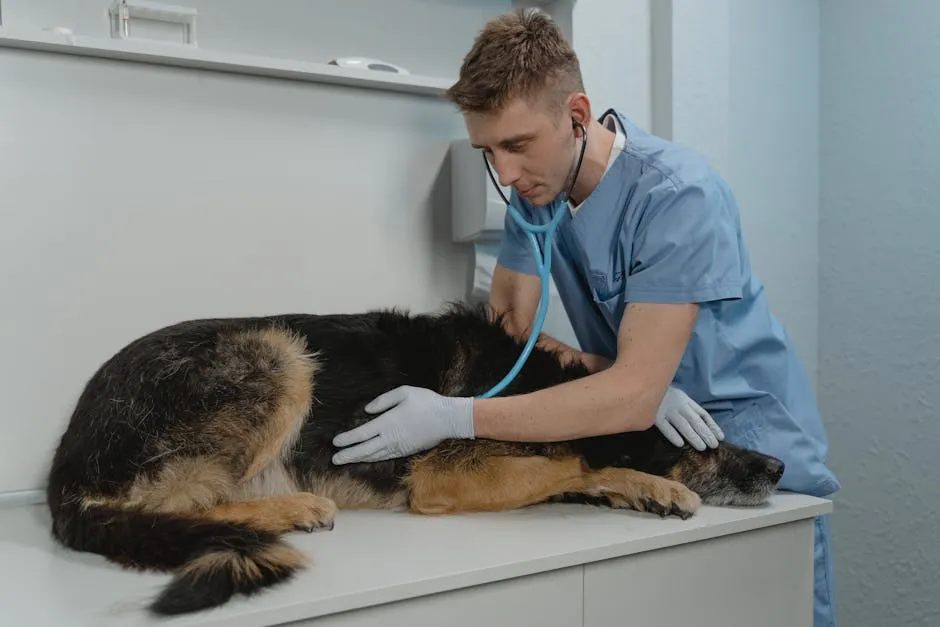
Treatment and Care for a Dry Nose
At-Home Remedies
If you’re looking to keep your dog’s nose moist, there are several simple strategies to try.
First, always ensure your dog has access to fresh water. Hydration is key to preventing dryness. A dog that drinks regularly will maintain better moisture levels. Consider investing in a PetSafe Drinkwell 2 Gallon Pet Fountain to keep the water flowing!

You can also use pet-friendly nose balms or coconut oil. These products can help soothe and hydrate your dog’s nose. Just apply a small amount directly to the dry areas.
Additionally, protect your dog’s nose from sunburn with dog-safe sunscreen. This is especially important for light-colored dogs or those with thin fur. Apply sunscreen before outdoor activities to keep their nose safe. Try Pawsitively Posh Pet Sunscreen for Dogs for a worry-free day in the sun!
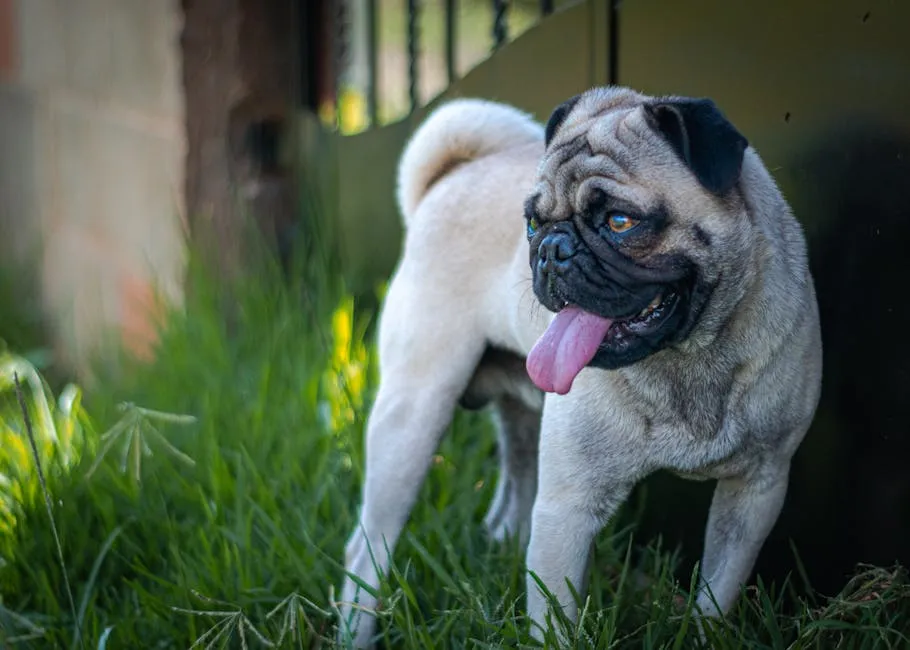
Veterinary Treatments
If home remedies don’t improve the dryness, it may be time to visit your veterinarian. They can assess your dog for underlying health issues. Conditions like autoimmune diseases or infections may require medical intervention.
Your vet might run diagnostic tests. These could include blood tests or skin biopsies to determine the cause of the dryness. Based on the findings, they will recommend appropriate treatments tailored to your dog’s needs.
Remember, addressing the root cause is essential for your dog’s long-term health and comfort.

FAQs
Is a dry nose always a sign that my dog is sick?
A dry nose can sometimes indicate illness, but it’s not always the case. Many factors contribute to a dry nose. For instance, dogs often wake up with a dry nose after sleeping. Environmental conditions, like heat or cold, can also play a role. If your dog has a dry nose but shows no other symptoms, it may be perfectly normal.
How can I keep my dog’s nose moisturized?
To keep your dog’s nose moisturized, ensure they drink plenty of fresh water. You can also apply dog-safe nose balms or coconut oil to their nose. These products hydrate and soothe dry areas. Regularly checking their nose and applying moisture when needed can help maintain its health.
When should I take my dog to the vet for a dry nose?
You should consult a vet if your dog’s dry nose is accompanied by other concerning symptoms. Look out for excessive lethargy, loss of appetite, or any signs of pain. If the nose appears cracked, swollen, or discolored, it’s time to seek professional advice. Persistent dryness should also prompt a visit.
Can environmental factors cause a dog’s nose to dry out?
Yes, environmental factors can significantly impact your dog’s nose moisture. Hot or windy weather can dry out a dog’s nose. Additionally, indoor heating during winter months can lead to dryness. Keeping your home comfortable and ensuring your dog has access to water can help mitigate these effects.
What are some common allergies that may affect my dog’s nose?
Common allergens include pollen, dust mites, and certain foods. Allergies can lead to symptoms like itching, sneezing, and, yes, a dry nose. If you suspect allergies, take note of when the symptoms occur. Consult your vet for testing and appropriate treatment options to alleviate your dog’s discomfort.
How can I tell if my dog’s nose is dehydrated?
To assess your dog’s hydration, check their nose and gums. A dry or tacky nose can indicate dehydration. Additionally, moist and pink gums are signs of good hydration. If the gums are dry or sticky, it may be time to offer water or consult a vet if the situation doesn’t improve.
Please let us know what you think about our content by leaving a comment down below!
Thank you for reading till here 🙂 And remember, keeping your dog entertained is key! Why not grab a KONG Classic Dog Toy? It’s a boredom buster that keeps tails wagging!
All images from Pexels




